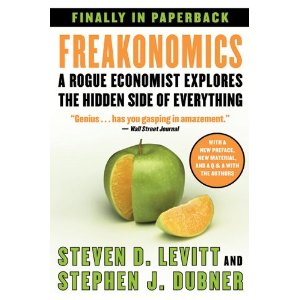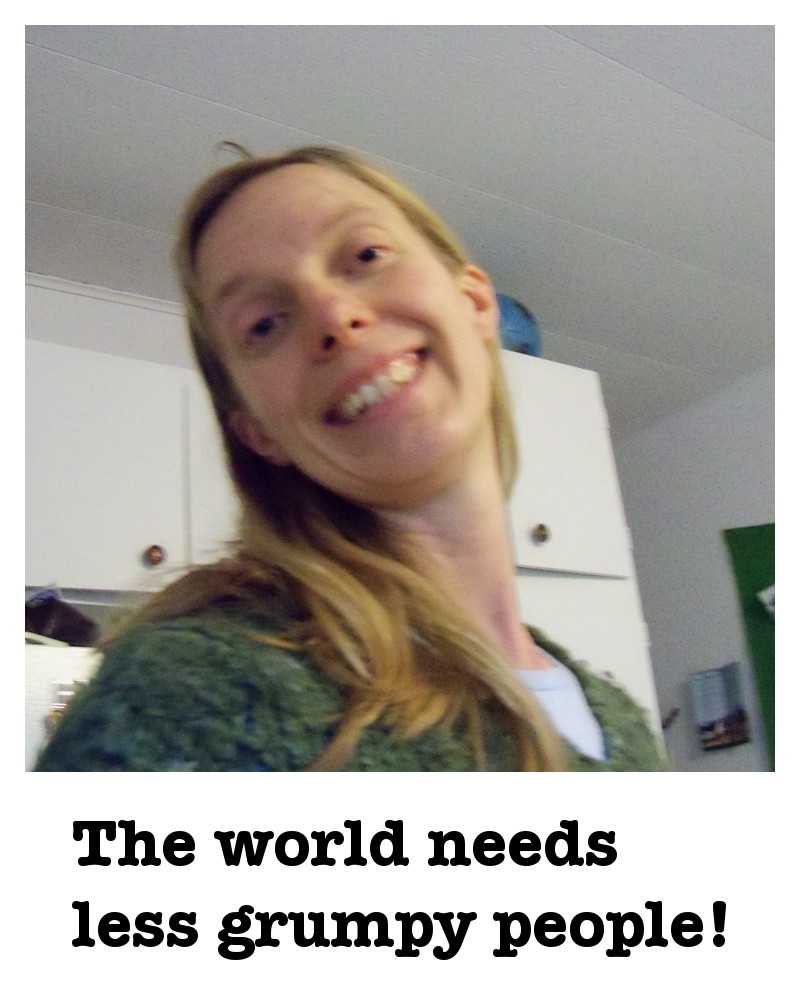It’s strange, but I am understanding new things about the world all the time. I now understand why some middle-aged women cut their hair short (or shorter) — it’s the awkwardness of grey hairs growing in. Another one: some people become alcoholics because they are punishing themselves for something, and are actually slowly committing suicide. One more: when we think of aliens, we think of “the greys,” but they aren’t necessarily real. They became well-known after the TV show “The X Files,” which is just a show, not a documentary!
 I’ve been reading Freakonomics by Steven D. Levitt and Stephen J. Dubner lately. In it, they look at all kinds of trends and statistics to try and figure out why the world is the way it is. No subject is taboo, and they are careful not to confuse morality with causality; just because something ought not to happen, doesn’t mean it doesn’t. As a result, I have a much better understanding of how urban street-life and drug culture work. The authors actually got financial records from a gang in Chicago, and a sociology student hung out with the gang members and made notes on what he learned. The over-arching theme in Freakonomics is incentive — what makes people do the things they do — and it’s becoming terribly interesting to me. (With my introverted nature, I never really thought about this much before.) The incentive to be a drug dealer? To be recognized, to be popular, to get rich — very similar to an aspiring actor: to be one of the very few to make it big.
I’ve been reading Freakonomics by Steven D. Levitt and Stephen J. Dubner lately. In it, they look at all kinds of trends and statistics to try and figure out why the world is the way it is. No subject is taboo, and they are careful not to confuse morality with causality; just because something ought not to happen, doesn’t mean it doesn’t. As a result, I have a much better understanding of how urban street-life and drug culture work. The authors actually got financial records from a gang in Chicago, and a sociology student hung out with the gang members and made notes on what he learned. The over-arching theme in Freakonomics is incentive — what makes people do the things they do — and it’s becoming terribly interesting to me. (With my introverted nature, I never really thought about this much before.) The incentive to be a drug dealer? To be recognized, to be popular, to get rich — very similar to an aspiring actor: to be one of the very few to make it big.
Sometimes, I get a new flash of understanding by reading/learning something, and other times it comes as a flash of insight — something more akin to intuition. I had a truly startling flash-revelation when I was in Wrigley. One morning, in that state between sleep and wakefulness, an image and a sentence came to mind: “If I get big enough, maybe they will leave me alone.” The really big girl I had met recently was obese because she was trying to keep men from bothering her. She had been abused and the thought that came through to me was crystal clear. It is sad, but I guess that is her coping strategy… I just don’t know if it’s working.
That flash of insight lead to this:
When you hate yourself, you are less healthy (which includes being overweight).
Many people would say I have it backwards: they hate themselves when they are overweight. But I believe it goes the other way. Why? Because the reverse is true:
When I like myself the most, I am naturally thin and healthy.
It is easy, and it doesn’t seem to matter much what I eat. The “work,” if you want to call it that, is in liking myself, because I’m human too, and sometimes I get into a habit of complaining about myself more than appreciating.
The thing is, you can’t fake liking yourself. Remember how Freakonomics is all about incentives? You can’t ask “what’s my incentive to like myself more? To be THIN!” That just reinforces the idea that you are not okay unless you are thin — a message that has saturated the media, although I am happy to see more normal body images popping up all the time.
But this blog post is not about being thin. It’s about understanding things, and how a new perspective changes everything. So let me summarize a few of my latest revelations:
- When I tell myself “I don’t feel like being grumpy today. I want to be happy!” I am well on the way to being happy.
- When I focus on what I have to work with, rather than what I am lacking, I become like MacGyver — solving problems, coming up with innovative solutions, and being a hero (at least to myself)!
- When I am grateful for everything around me, I am overwhelmed with contentment.
- When I am happy about who I am, health comes easily.
- If you’re after fame and fortune, choose acting rather than dealing drugs (it’s a lot safer).
- No matter the hair style, grey hairs happen!









